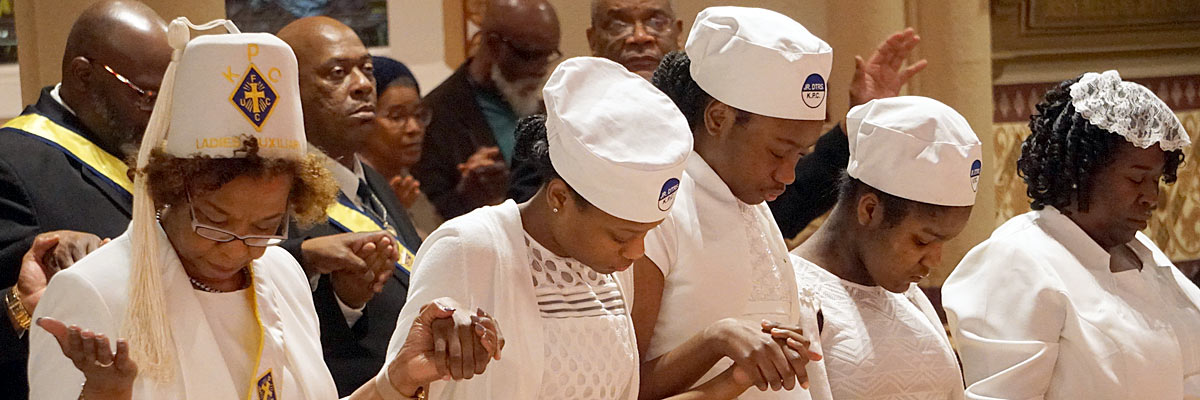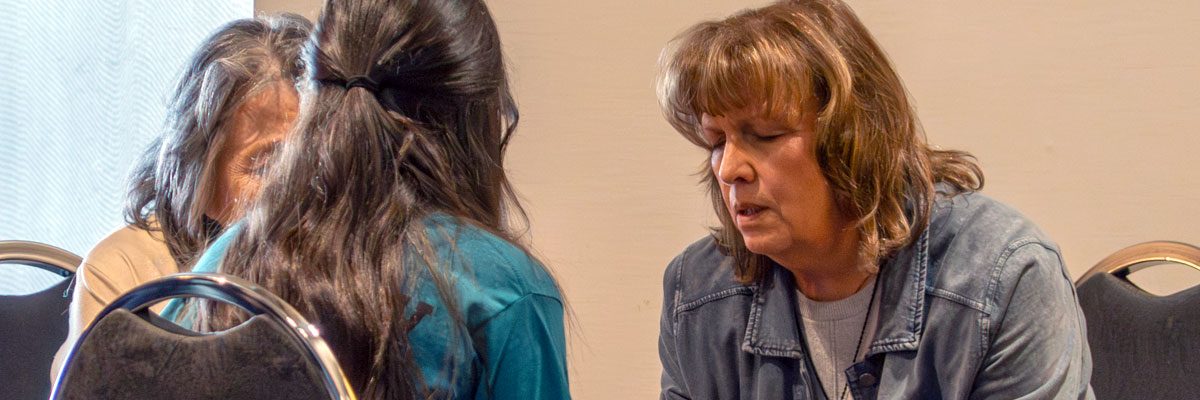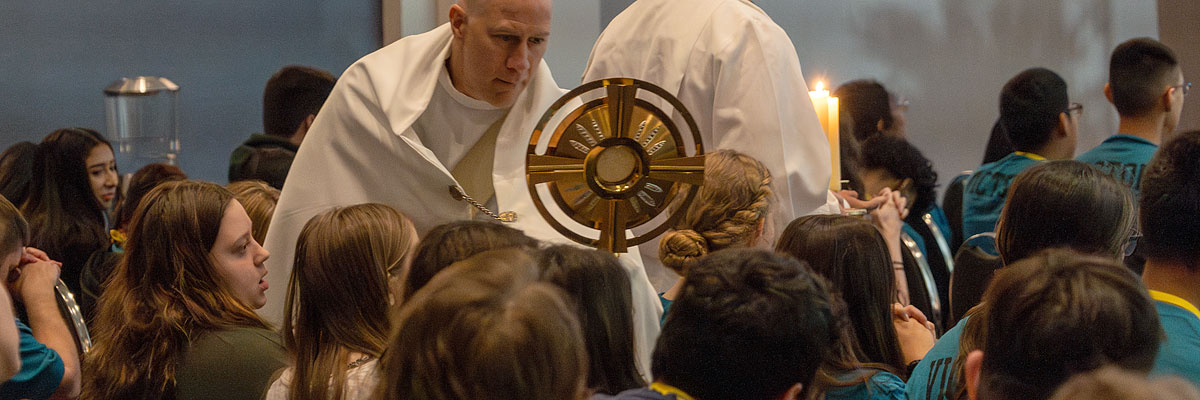Official Website of the
Catholic Diocese of Little Rock
All Souls' Day 2014
Published: November 2, 2014
Bishop Anthony B. Taylor preached the following homily at the Cathedral of St. Andrew in Little Rock on Nov. 2, 2014.
Download MP3 file to your device

Bishop Taylor
Years ago I was told that there had been a priest in Oklahoma who would sometimes begin funeral Masses saying, in effect, "We are gathered here today to pray for so-and-so who has passed from this life and, God willing, has made it safely into purgatory." As you can imagine, this didn't go over too well, but you get the idea: we pray for the dead and we believe that the dead can benefit from our prayers.
Indeed, that is what is most distinctive about Catholic funerals: we've come to pray for the deceased, not merely celebrate his life, as if that were all there is.
We begin every Mass except funeral Masses with a penitential rite in which we acknowledge that we are sinners and ask God to forgive us. In funerals we still ask God to forgive us (in the Lamb of God and elsewhere) but the penitential rite is replaced by the rite of receiving the body at the entrance to the Church, sprinkling the body with holy water as a reminder of baptism, through which the deceased was set free from the power of sin and death, and prayers throughout the Mass in which we acknowledge that the deceased is a sinner and so we are asking God to forgive him or her. Which makes it feel really odd when we attend a funeral that comes off more like a Mass of canonization than a Mass in which we have come to plead for God's mercy for our loved one.
Indeed, that is what is most distinctive about Catholic funerals: we've come to pray for the deceased, not merely celebrate his life, as if that were all there is.
If the funeral Masses of Mother Teresa and Pope John Paul II included all our traditional prayers for God's mercy, doesn't it make sense that the rest of us who are not quite so evidently saintly might need a bit of God's mercy as well?
This is also why we have All Souls' Day — which you won't find in those churches whose funerals are merely celebrations of a life, with no thought that the deceased might benefit from some prayers. And while we pray spontaneously for deceased loved ones on their anniversaries of death, on All Souls' Day we lift up our prayers also for those who may have no one to pray for them — a beautiful expression of the communion of the saints.
We pray for the spiritual welfare of countless people who may be in purgatory whom we have never met, but with whom we are united in faith and in the mystical body of Christ: we are the church militant, still struggling against evil in this life, praying for the church suffering in purgatory, with the church triumphant of those already in heaven interceding for us and for the poor souls in purgatory.
One of the things I have noticed over the years is that people of faith — and in particular, Catholics who really live their faith — grieve differently, and today's celebration points to one of the reasons why ... namely, that death does not really separate us in any definitive or lasting way. Not only is our separation temporary — something that all Christians acknowledge.
It is also only a physical separation, because spiritually we are not separated at all — hence our prayers for the deceased unite us across the boundary between this life and the next, and the intercession of the saints unites us also across the boundary between purgatory and heaven.
So today, united with all the angels and saints, we lift up our prayers to God not only for the eternal rest of those who have gone before us, but also for their eternal share in the glory of God's kingdom ... to which they already belonged in this life and in which we all hope to share fully in the next!






